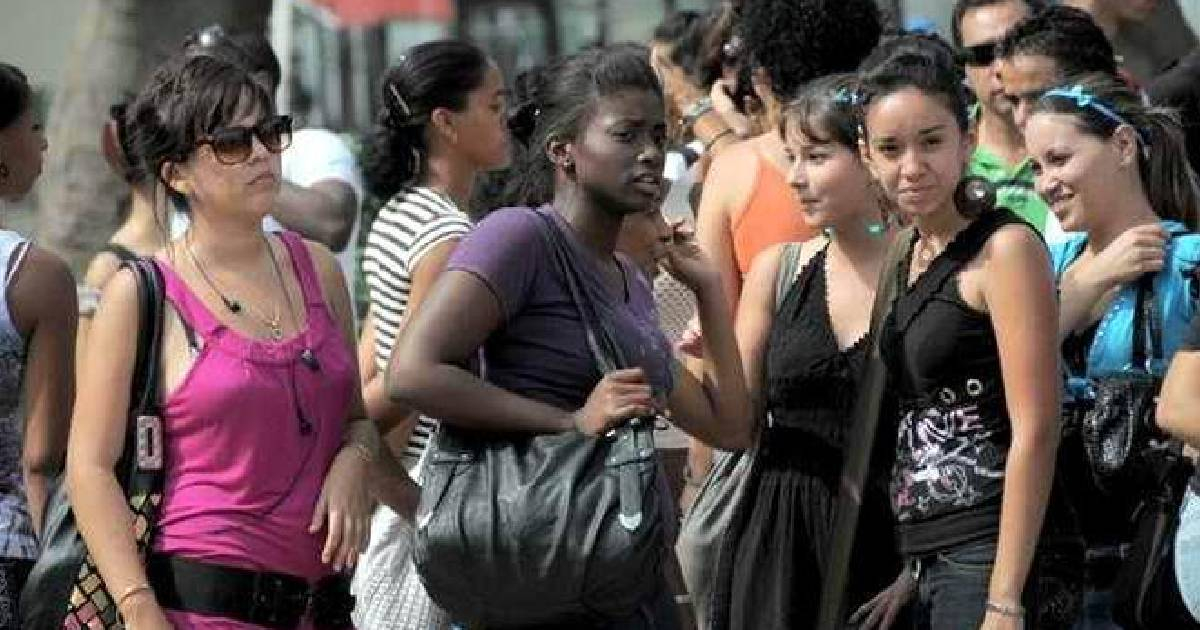The Cuban government has established a national system for the registration, attention, tracking, and monitoring of gender-based violence within family settings, as announced during a Council of Ministers meeting. A report from the state-run newspaper Granma mentions that the system comprises “25 experts” from the Ministry of the Interior and the Supreme People’s Court, aiming to develop “a computerized and interoperable administrative registry utilizing the platforms of these institutions for managing criminal processes.”
The Attorney General of the Republic, Yamila Peña Ojeda, stated that the primary utility of this tracking system is to provide a database for “gathering statistical information to aid in the prevention of gender-based violence incidents.”
According to Cuban leaders, “the implementation of the National Registry System and the transparency of its results strengthen the rule of law, help deter manifestations of violence, combat impunity, enhance legal education among the populace, and fortify the social fabric around an issue that concerns everyone,” defended Peña Ojeda.
Key Findings and Ongoing Issues
Additionally, the Cuban Attorney General highlighted that during 2023, the regime obtained data on these cases, revealing that 75% of the incidents occurred in homes. She noted that this trend continues this year. Furthermore, 72% of the incidents involved victims aged between 25 and 59 years, and 45% were unpaid workers.
Authorities confirmed that “survivors who suffered abuse during their relationship and those who had previously reported threats or injuries, sometimes withdrawing complaints as part of the cycle of violence,” were identified. Peña Ojeda reported that, according to their data, 84% of the perpetrators were partners or ex-partners; 46% had a ninth-grade education; 40% were employed; and 31% had a criminal history of violent acts.
Despite these statistics, the government remains unclear about the numbers it manages, providing little transparency to the public. This is particularly troubling when Cuban feminist platforms, which have been consistently recording and reporting cases, have documented 220 femicides on the island from 2019 to 2023, with 89 occurring in the last year alone.
Independent observatories Alas Tensas (OGAT) and YoSiTeCreoCuba maintain their records despite passive observation by authorities who refuse to acknowledge that violent deaths of women are a growing problem. During its Council of Ministers, the regime outlined its criteria for assessing gender violence: actions in a position of dominance, men dissatisfied with relationship breakups, using the presence of children to inflict more suffering, and employing weapons or physical force.
It's also crucial to note that the Cuban regime does not include the concept of femicide in the current Penal Code, which was approved in May 2022. Hidden behind semantic arguments and cheap politicking, the communist totalitarianism in Cuba avoids discussing gender violence with the internationally recognized terminology used by countries that acknowledge and combat this scourge.
Meanwhile, the Cuban ruler Miguel Díaz-Canel has described femicide as a “media construction” by independent outlets. “Anti-Cuban subversive platforms attempt to impose the notion that femicide exists in Cuba, a term indicating supposed state inaction in the face of gender-based violence. We can categorically assure here that this is a media construction entirely foreign to the Cuban reality,” Díaz-Canel declared last March at the closing of a Congress of the Federation of Cuban Women.
According to Díaz-Canel, the justification for not recognizing femicide is that there is no “state inaction” regarding these crimes. This subterfuge seeks to conceal the deeply patriarchal and macho nature underlying Cuban society, especially within the virile imagery developed by the propaganda of the so-called “revolution” and the indoctrination of the Communist Party of Cuba.
Frequently Asked Questions About Cuba's Gender Violence Monitoring System
Here are some common questions and answers regarding the newly established national system for monitoring gender-based violence in Cuba:
What is the purpose of Cuba's new gender violence monitoring system?
The system aims to register, track, and monitor incidents of gender-based violence, providing a statistical database to aid in prevention efforts.
Who are the main entities involved in the system?
The system involves 25 experts from the Ministry of the Interior and the Supreme People’s Court of Cuba.
How does the Cuban government justify not recognizing femicide?
The government claims that there is no state inaction regarding gender-based violence and labels femicide as a “media construction” by independent outlets.
